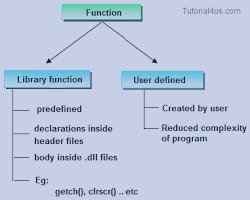C++ functions
C++ functions are an essential aspect of programming in C++.
They are reusable blocks of code that perform a specific task, and they make programming more efficient by reducing code duplication and increasing modularity.
In this article, we will explore the different types of functions in C++, their syntax, and best practices for writing effective functions.
Function Definition
In C++, functions are defined using the following syntax:
c++ code
return_type function_name(parameter_list) { // Function body }
The return type specifies the type of the value that the function returns.
It can be any valid C++ data type or void, which means that the function does not return a value.
The function name is a user-defined identifier that represents the function. The parameter list is a comma-separated list of input parameters that the function accepts.
The function body is a block of code that performs a specific task.
It can contain any valid C++ code, including other function calls, loops, and conditionals. When the function is called, the code in the function body is executed, and the result is returned to the caller.
Types of Functions
There are two main types of functions in C++: library functions and user-defined functions.
Library Functions
Library functions are predefined functions that are part of the C++ standard library.
They perform common tasks such as input/output operations, mathematical calculations, and string manipulation.
Library functions can be called from any C++ program without requiring additional code.
Here is an example of using a library function to calculate the square root of a number:
c++ code
#include <cmath>
#include <iostream>
int main()
{
double x = 16.0;
double result = std::sqrt(x);
std::cout << "The square root of " << x << " is " << result << std::endl; return 0;
}
The std::sqrt() function is a library function that calculates the square root of its input parameter.
In this example, we include the <cmath> header file that defines the std::sqrt() function.
We then call the function with the value of x and store the result in the result variable. Finally, we output the result using std::cout.
User-Defined Functions
User-defined functions are functions that are defined by the programmer.
They are used to encapsulate a specific task or functionality that can be reused throughout the program.
User-defined functions can take one or more input parameters and return a value or have no return value.
Here is an example of a user-defined function that calculates the factorial of a number:
c++ code
#include <iostream>
int factorial(int n)
{ if (n == 0) { return 1;
} else
{
return n * factorial(n - 1);
} }
int main()
{
int n = 5;
int result = factorial(n);
std::cout << "The factorial of " << n << " is " << result << std::endl;
return 0;
}
In this example, we define a user-defined function factorial() that takes an integer input parameter n and returns an integer value.
The function uses a recursive algorithm to calculate the factorial of the input parameter.
In the main function, we call the factorial() function with the value of n and store the result in the result variable. Finally, we output the result using std::cout.
Best Practices
To write effective functions in C++, it is important to follow some best practices.
Use Meaningful Names
The name of a function should describe the task that it performs. Use descriptive names that make it easy to understand what the function



0 Comments